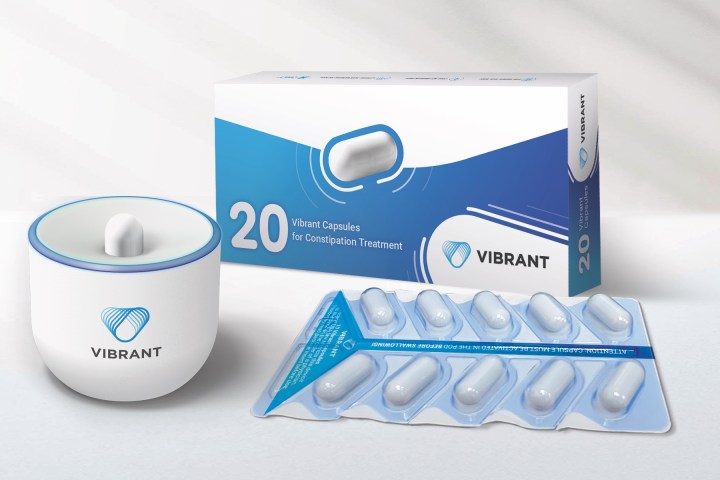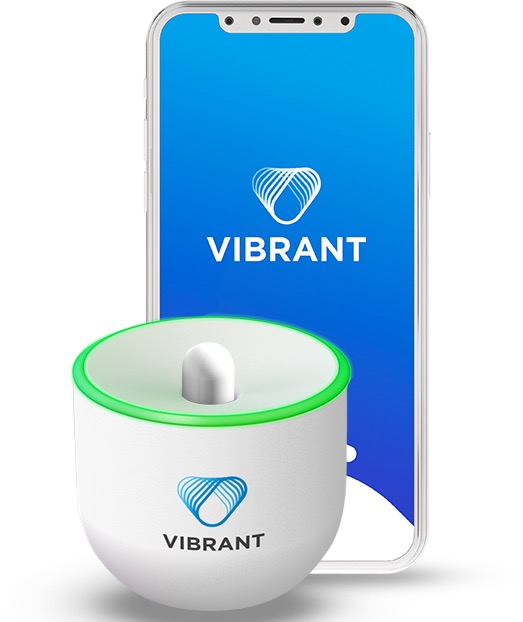Instead of popping in laxatives, you might soon find yourself ingesting a drug-free smart capsule that vibrates in your guts to solve your constipation woes. The folks at the Medical College of Georgia — Augusta University have published fresh research that claims that a vibrating capsule “appears to double the ability for adults struggling with debilitating chronic constipation to defecate more normally.” The news comes just days after another team of researchers unveiled a strip you can pee on to potentially identify cancer.
The capsule excites the muscle walls, which leads to gradual contraction of the colon that creates a peristalsis-like movement, stirring the material inside and allowing defecation. For the unaware, peristalsis refers to the contraction and relaxation of muscle walls in a tube, allowing movement of edible items down the food pipe and the digested material down the intestine.

The fittingly named “Vibrant” capsule was cleared by the Food and Drug Administration (FDA) last year, and it is being marketed as an alternative to laxative therapies. The capsule, which comes with a pod, needs only a few seconds to get activated by placing it inside the pod, prior to being swallowed. Once the job is done, the capsule passes out of the body with stool. The latest research also marks the first time that Vibrant has become “available for physicians to prescribe.”
Published in the journal Gastroenterology, the latest research involved over 300 adults in nearly 90 centers across the country. The capsule, which is made out of latex-free plastic, produces two vibrating sessions each day, with each vibration session lasting two hours in the colon, where 3 seconds of gentle stirring is followed by 16 seconds of rest.
During the clinical trials, the team compared the vibrating capsule’s efficiency with a non-vibrating capsule and found that the vibrating capsule allowed for a “two- to three-fold increase in the number of complete spontaneous bowel movements per week” in constipation patients.

It not only improved stool frequency, but also enhanced the completeness of the bowel movements, and even helped with straining and stool consistency problems. The only side effect reported during the latest trial was that about 11% percent of the participants reported feeling mild vibrating sensations in their gut, but continued to use it.
Another advantage is that it doesn’t wash away the healthy gut microbiome, as is the case with multiple medicinal drugs. So far, the team also hasn’t come across any negative impact of Vibrant capsules on the activity of gut microbes. Vibrant is currently available in a self-pay format that costs $2 to $3 daily.
Touted to be the first capsule-based trial of its kind for any gastrointestinal problem, the research also notes that it is the first time that experts can activate the treatment process right at the target spot — which happens to be the colon in this case.
Notably, the capsule can also be personalized for patients suffering from different kinds of constipation by allowing a gastroenterologist to adjust the timing and duration of the vibration treatment. However, the most promising aspect of the research is that the capsule can also be tweaked to solve other gastrointestinal problems.
For example, if an individual suffers from stomach paralysis, the vibrating capsule can be activated much earlier in the stomach, stimulating its walls. Likewise, it can also be deployed to fix bowel-related issues in the small intestine.
One of the biggest advantages of the FDA-cleared vibrating capsule is that it is a drug-free solution, which means there is no risk of a reaction or chemical rejection by the body. Clinical tests suggest that Vibrant is “efficacious for severe, moderate, and mild patients.”
Editors' Recommendations
- Do you have cancer? Peeing on this tiny, cheap strip can tell you
- You can finally take ECGs and track AFib on a Garmin smartwatch
- Withings brought a new health tracker to CES 2023 — and it wants you to pee on it
- Your Apple Watch’s SpO2 sensor might be a lot better than you thought
- The Happy Ring is a smart mood ring that tracks stress, not steps







